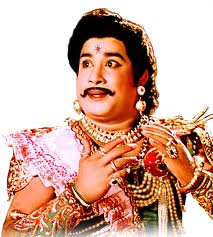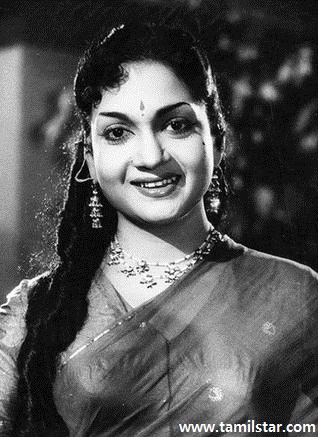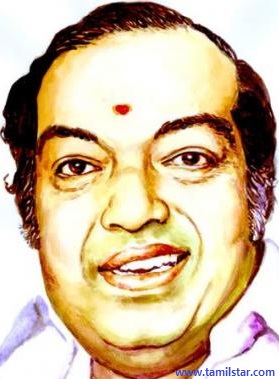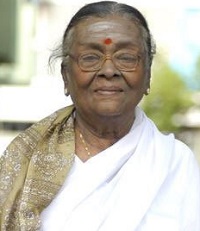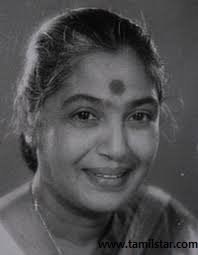
Showing all artists born in 1927
Sivaji Ganesan
Viluppuram Chinnaiahpillai Ganesan Mandrayar, popularly known as Sivaji Ganesan was a Tamil stage and film actor who was considered to be among the first and finest method actors in India. His fame came from his versatility and expressive prowess in Tamil cinema. He was the first Indian film actor who won a best actor award in an international film festival, the Afro-Asian Film Festival held in Cairo, Egypt in 1959 and the first Indian actor to be made a Chevalier of the Ordre des Arts et des Lettres.
Sivaji Ganesan was born on 01.10.1927 to Chinayya Mandrayar and Rajamani Ammal, in a Tamil middle class Kallar family. That day was a Monday, and on that day his father Chinnaiya mandrayar was arrested for taking part as a freedom fighter in an anti-British campaign in Villupuram.
Sivaji Ganesans acting career runs to more than... See full bio
Sivaji Ganesan was born on 01.10.1927 to Chinayya Mandrayar and Rajamani Ammal, in a Tamil middle class Kallar family. That day was a Monday, and on that day his father Chinnaiya mandrayar was arrested for taking part as a freedom fighter in an anti-British campaign in Villupuram.
Sivaji Ganesans acting career runs to more than... See full bio
Known For:
Padayappa
, Once More
, Viduthalai
, Pasumpon
, Thevar Magan
, Mannukkul Vairam
, Needhiyin Nizhal
, Dhavani Kanavugal
, Vellai Roja
, Miruthanga Chakravarthi
, Raja Rishi
, Sandhippu
, Thunai
, Kavari Maan
, Pilot Premnath
, Vietnam Veedu
, Saraswati Sabatham
, Veerapandiya Kattabomman
Anjali Devi
Anjali Devi (24 August 1927 – 13 January 2014) was an Indian actress, former model and producer in Telugu and Tamil. She was well known for her role as the mythological Sita in Lava Kusha as well as for the titular roles in movies like Suvarna Sundari and Anarkali.
Anjali Devi was born in Peddapuram, East Godavari district in Andhra Pradesh, India, as Anjamma. She changed her name to Anjani Kumari when acting in dramas. Later, director C. Pullaiah changed her name to Anjali Devi.
Career
As actress
She was a theatre artiste before venturing into movies. Her debut film role was as Lohitasya in Raja Harishchandra in 1936. Her first movie as a heroine was Kashtajeevi by L. V. Prasad in 1940, but that movie was abandoned after three reels shooting. Later, C.Pullayya di... See full bio
Anjali Devi was born in Peddapuram, East Godavari district in Andhra Pradesh, India, as Anjamma. She changed her name to Anjani Kumari when acting in dramas. Later, director C. Pullaiah changed her name to Anjali Devi.
Career
As actress
She was a theatre artiste before venturing into movies. Her debut film role was as Lohitasya in Raja Harishchandra in 1936. Her first movie as a heroine was Kashtajeevi by L. V. Prasad in 1940, but that movie was abandoned after three reels shooting. Later, C.Pullayya di... See full bio
Known For:
Kannadasan
Kannadasan given name at birth was Muthiah. But when he made his exit from this world, at the age of 54, on October 16, 1981, millions of Tamils remembered him only by the name Kannadasan. For Tamils all over the world, he epitomised Tamil poetry. Even the illiterate, who couldn't read and memorise the poetry of Kamban or the maxims of Valluvan, could hum the compositions of poet Kannadasan.
A number count of his publications shows a tally of 109 volumes, which include 21 novels and 10 slim volumes of essays on Hinduism, captioned Arthamulla Indu Matham (Meaningful Hinduism). In addition, he produced about 4000 poems and approximately 5000 movie lyrics, between 1944 and 1981, all with an eighth grade education at the formal level. He was also an excellent example of this century's Tamil goliard.
What made Kannadasan click? T... See full bio
A number count of his publications shows a tally of 109 volumes, which include 21 novels and 10 slim volumes of essays on Hinduism, captioned Arthamulla Indu Matham (Meaningful Hinduism). In addition, he produced about 4000 poems and approximately 5000 movie lyrics, between 1944 and 1981, all with an eighth grade education at the formal level. He was also an excellent example of this century's Tamil goliard.
What made Kannadasan click? T... See full bio
Known For:
Apoorva Raagangal
S. N. Lakshmi
S. N. Lakshmi or Sennalkudi Narayana Thevar Lakshmi (born 1927 – 20 February 2012) was an Indian film actress, who appeared in supporting roles, often essaying roles of mother or grandmother in films. A recipient of the state government's Kalaimamani and Kalaiselvam awards, Lakshmi acted in more than 1,500 films and 6,000 dramas.
Lakshmi was born to Narayana Thevar as the 13th child in her family, and left home anguished aged just 11, because her six brothers who were much older did not give her the attention she deserved. Her family had to move from their village town of Sennalkudi to Virudhunagar after their father had died and her mother worked at a small hotel and also at the temple there to keep the family financially afloat. Her neighbour, a dancer, helped Lakshmi join a drama troupe and she quickly picked up the steps she... See full bio
Lakshmi was born to Narayana Thevar as the 13th child in her family, and left home anguished aged just 11, because her six brothers who were much older did not give her the attention she deserved. Her family had to move from their village town of Sennalkudi to Virudhunagar after their father had died and her mother worked at a small hotel and also at the temple there to keep the family financially afloat. Her neighbour, a dancer, helped Lakshmi join a drama troupe and she quickly picked up the steps she... See full bio
Known For:
Kadhal 2 Kalyanam
, Malai Malai
, Silambattam
, Durai
, Kuruvi
, Virumaandi
, Kanna Unnai Thedukiren
, Ennavale
, Pennin Manathai Thottu
, Vaanathaippola
, Ponvizha
, Sangamam
, Kallazhagar
, Ninaithen Vandhai
, Kaathala Kaathala
, Chinna Vathiyar
, Mahanadi
, Villu Pattukaran
, Thevar Magan
, Chinnavar
, Thanga Manasukkaran
, Pudhiya Raagam
, Michael Madana Kama Rajan
, Mallu Vetti Minor
, Kanni Rasi
Nirmalamma
Nirmalamma (1927 – 19 February 2009) was an actress in the Telugu film industry of India. She has acted in more than 800 films. She was well known for her grandmother roles in several films.
She was born in Machilipatnam, Madras Presidency, British India.
Her debut film was Garuda Garvabhangam in 1950. Nirmalamma has worked along with almost all famous artists in Telugu Cinema like NTR, ANR, S.V. Ranga Rao, Rajendra Prasad, P. B. Srinivas, Megastar Chiranjeevi, Nandamuri Balakrishna and Venkatesh many more. She is one of the artists who appears in almost all of the movies of S.V. Krishna Reddy and E. V. V. Satyanarayana. She has had unforgettable roles in the films Chinnodu Peddodu, Padaharella Vayasu, Kanakamahalakshmi Recording Dance Troupe, Gang Leader, Mayalodu, Egirey Paavurama, Rendilla Poojari, Devatha (Shoban b... See full bio
She was born in Machilipatnam, Madras Presidency, British India.
Her debut film was Garuda Garvabhangam in 1950. Nirmalamma has worked along with almost all famous artists in Telugu Cinema like NTR, ANR, S.V. Ranga Rao, Rajendra Prasad, P. B. Srinivas, Megastar Chiranjeevi, Nandamuri Balakrishna and Venkatesh many more. She is one of the artists who appears in almost all of the movies of S.V. Krishna Reddy and E. V. V. Satyanarayana. She has had unforgettable roles in the films Chinnodu Peddodu, Padaharella Vayasu, Kanakamahalakshmi Recording Dance Troupe, Gang Leader, Mayalodu, Egirey Paavurama, Rendilla Poojari, Devatha (Shoban b... See full bio

